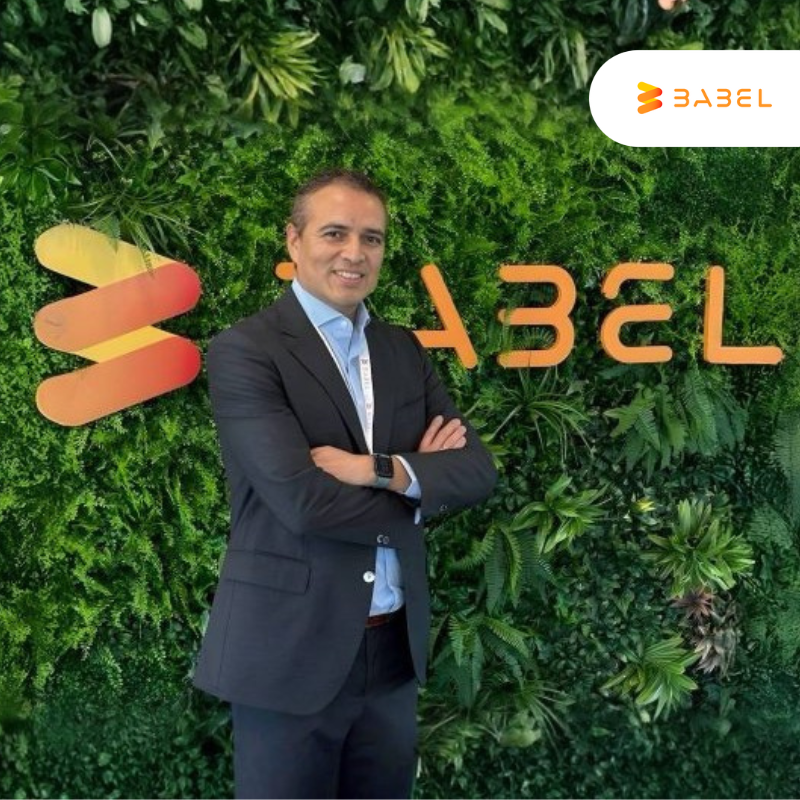The company proposes a practical guide with the solutions that will allow retailers to anticipate demand, scale their operations, and offer personalised experiences during peak consumption periods.
- Artificial intelligence and predictive analytics allow forecasting demand, adjusting stock, and reducing returns.
- Hybrid cloud and automation ensure flexibility, agility, and efficiency at moments of maximum commercial pressure.
- Sensors, IoT, and computer vision connect the online world with physical stores for a seamless omnichannel experience.
With Black Friday at its peak and the Christmas campaigns about to begin, retailers face the challenge of managing a volume of transactions that multiplies their usual activity. In this context, Babel has identified a set of technologies that enable maximising the commercial potential of these dates while maintaining an optimal customer experience. The company, which works with major chains in the sector, has designed a roadmap that combines artificial intelligence, automation, and hybrid cloud to respond agilely to peaks in demand and improve the profitability of each campaign.
The first piece of the puzzle is artificial intelligence, which no longer merely predicts sales but also returns. Thanks to advanced analytics, retailers can anticipate behaviours, adjust prices in real time, and foresee stockouts. According to the company’s estimates, these capabilities could reduce response times by around 30% and increase demand forecast accuracy by up to 25%. AI has become the great orchestrator of modern retail, capable of translating millions of data points into immediate decisions that balance supply and demand without compromising the customer experience.
Alongside it, process automation frees teams from repetitive tasks so they can focus on those that generate value. Automation allows operations to be scaled without multiplying resources and maintains service consistency even when sales soar. At this stage, RPA systems and intelligent workflows are integrated into customer service, logistics, and marketing departments, accelerating response times and reducing operational costs by more than 30%.
The third pillar is hybrid cloud, which combines the security of private infrastructures with the flexibility of public ones. This model allows companies to immediately expand their technological capacity during seasonal peaks and reduce it afterwards, optimising expenditure and ensuring continuity of service. In the words of Enrique Ibarreta, Head of Retail at Babel: “Hybrid cloud is the invisible engine that supports the scalability of modern retail.”
The fourth key area is true omnichannel, made possible by integrating data from all customer touchpoints. Connecting the online and physical environment allows recognising the shopper in both spaces, personalising offers, and adapting the experience based on their behaviour. To achieve this, sensors, IoT, and computer vision provide information about the consumer’s journey in-store, generating heat maps and triggering campaigns in real time.
In parallel, technologies such as edge computing allow processing this data locally and in milliseconds, essential for activating promotions or recommendations at precisely the right moment. This immediate reaction capability transforms the store visit into a dynamic, personalised space aligned with the speed the customer experiences in the digital environment.
Another tool gaining prominence at these times is hyper-personalisation. Through the combined use of AI and machine learning, retailers can offer precise recommendations, tailor messages according to context, and build longer-lasting customer relationships. It is not just about selling more, but about creating an experience that brings the customer back.
Reverse logistics also enters Babel’s technological focus. The rise of e-commerce and frictionless return policies have turned this phase into a logistical and financial challenge. Using predictive models and quality data analysis, retailers can anticipate returns, adjust stock, and minimise costs arising from these operations—a decisive variable for campaign profitability.
“Black Friday is no longer won at the storefront, but in anticipation. Brands that can read data in real time and adjust their decisions sell more, with less friction and a better customer experience,” says Ibarreta.
Babel reminds us that the key to success is not just technology, but how it is applied. That is why the company accompanies its clients throughout the process: from product definition and digital service design to the construction, operation, and maintenance of solutions. This comprehensive model combines business knowledge, technical capability, and strategic vision, allowing each project to be tailored to the retailer’s particularities.
“Technology should free people, not replace them. AI and automation handle the repetitive, while human teams focus on strategy, empathy, and creativity,” Enrique Ibarreta, Head of Retail at Babel.
Each campaign is a test of speed, but also of precision. Knowing the customer, anticipating their behaviour, and balancing technology with human experience will make the difference between those who manage to make the most of Black Friday and those who merely survive it. Babel places that balance at the centre of its vision: technology serving people and data turned into decisions.
Explore how we are transforming the Retail sector.
Discover our Artificial Intelligence solutions.

